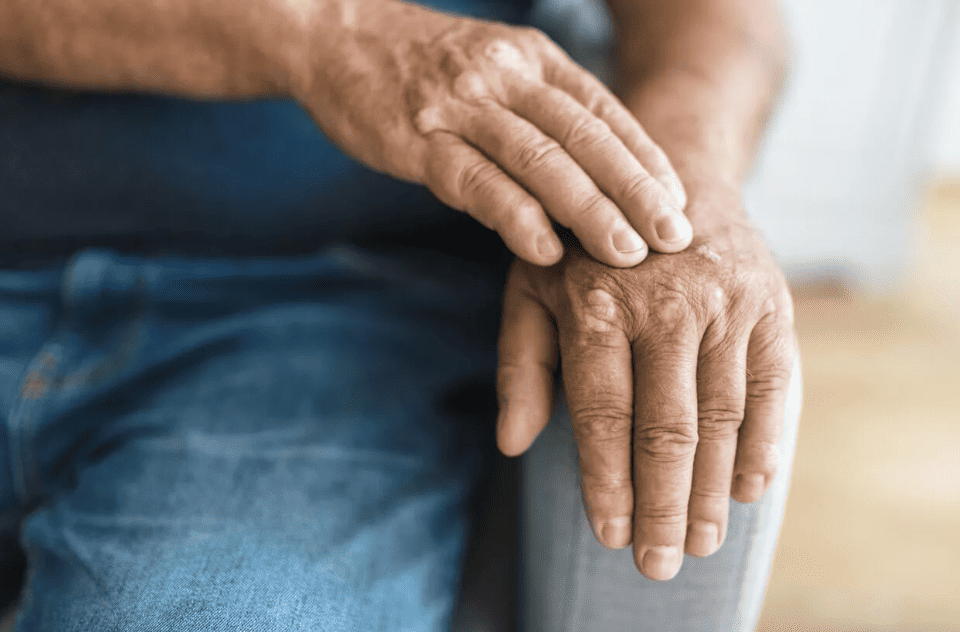What is psoriasis?
Psoriasis is a chronic autoimmune disease that affects the skin, causing red, scaly patches to appear. But did you know that psoriasis can also have a profound impact on mental health? Studies have found that people with psoriasis are more likely to experience depression, anxiety, and other mental health conditions than those without the condition. Let’s take a closer look at the connection between psoriasis and mental health.
Psoriasis is a complex condition that involves both genetic and environmental factors. The exact cause of psoriasis is not fully understood, but it is known to involve an overactive immune system. When the immune system is triggered, it causes skin cells to grow too quickly, resulting in the characteristic patches of psoriasis.
But psoriasis is more than just a skin condition. It is a chronic disease that can affect many aspects of a person’s life. For one, it can be physically uncomfortable and even painful. It can also be emotionally challenging, as people with psoriasis may feel self-conscious or stigmatized due to the visible nature of the condition.
Psoriasis and Mental Health
All of these factors can contribute to poor mental health outcomes. In fact, studies have found that people with psoriasis are at higher risk for a range of mental health conditions, including depression, anxiety, and even suicidal ideation.
One possible explanation for this connection is that chronic inflammation, which is a hallmark of psoriasis, can also affect the brain. Inflammation has been linked to a range of mental health conditions, including depression and anxiety. Additionally, the stress of living with a chronic condition can also take a toll on mental health.
But it’s not just inflammation and stress that can impact mental health in people with psoriasis. The social stigma and embarrassment associated with the visible symptoms of the condition can also contribute to poor mental health outcomes. For example, some people with psoriasis may avoid social situations or feel self-conscious about their appearance, which can lead to feelings of isolation and low self-esteem.
Treatment of psoriasis
Despite the challenges associated with psoriasis and mental health, there are treatments and strategies that can help. For one, it’s important to seek professional help if you are struggling with depression, anxiety, or other mental health conditions. A mental health professional can provide guidance and support for managing symptoms and improving overall well-being.
Additionally, there are many treatments available for psoriasis that can help to reduce symptoms and improve quality of life. These include topical creams and ointments, light therapy, and oral or injectable medications. Lifestyle changes, such as reducing stress and improving sleep, can also be helpful.
It’s also important to remember that you are not alone. Many people with psoriasis experience mental health challenges, and there are support groups and online communities that can provide a sense of connection and understanding.
The connection between psoriasis and mental health is a complex and important issue. While psoriasis can be physically uncomfortable, it can also take a toll on mental health, contributing to depression, anxiety, and other conditions. It’s important to seek professional help if you are struggling with mental health challenges, and to work with a healthcare provider to develop a treatment plan that addresses both physical and mental health concerns. By taking steps to manage psoriasis and prioritize mental health, it is possible to live a fulfilling and satisfying life.
Controlling Anxiety and Psoriasis.
Step 1
Seek Professional Help:
It’s important to work with a healthcare provider to develop a treatment plan that addresses both the physical and mental aspects of psoriasis. A mental health professional can provide guidance and support for managing anxiety symptoms and improving overall well-being. Here at AMP Mental Health, we have seen many patients with psoriasis that see a significant reduction in symptoms once their mental health issues are addressed.
Step 2
Practice Stress-Reduction Techniques:
Stress can trigger psoriasis flares and exacerbate anxiety symptoms, so it’s essential to incorporate stress-reduction techniques into daily life. Meditation, deep breathing exercises, yoga, and regular exercise can help reduce stress levels and improve overall mood.
Step 3
Make Lifestyle Changes:
Simple lifestyle changes can make a big difference in managing both psoriasis and anxiety. Eating a healthy diet, getting enough sleep, avoiding triggers like smoking and alcohol, and practicing good skin care can all contribute to overall well-being.
Keep in mind that everyone’s experience with psoriasis and anxiety is different, and what works for one person may not work for another. It’s important to work with a healthcare provider to develop an individualized treatment plan that addresses your unique needs and concerns.







This Post Has 2 Comments
I always was concerned in this topic and still am, thankyou for posting.
Cheers!